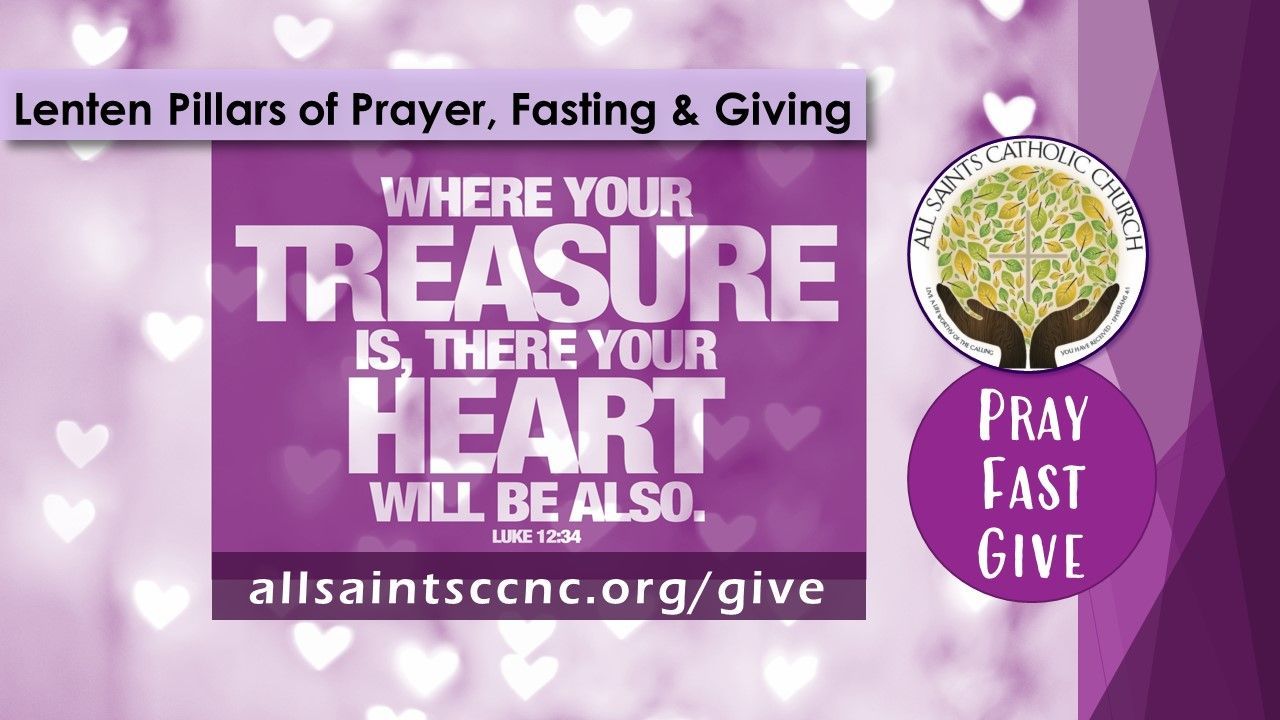Homily - February 18, 2024
“I will recall the covenant I have made.”

First Sunday in Lent—Year B
Readings: Gn 9:8-15; Ps 25:4-5, 6-7, 8-9; 1 Pt 3:18-22; Mk 1:12-15
“I will recall the covenant I have made.”
As we enter into the Lenten season, there are traditional spiritual exercises that come to mind: fasting, more intensive prayer, greater generosity and sacrificing small pleasures. But there is a practice that is one of the most powerful in spiritual life and, yet one of the least discussed and practiced: the exercise of memory. I don’t know whether you realize that our sins are rarely the product of a deep-seated desire to do evil, or to withdraw from God. Rather, they result from our forgetting just how beautiful and life-giving a rightly ordered relationship with God can be: that it can be a source of peace and calm in the midst of stress or fear; it can provide courage and fortitude in the face of despair or shame; it can offer a joy and gratification which undermines any sense of resentment, anger, or greed. Sin is always a power-grab for something other than an authentic relationship with God—a power grab that seemingly provides a readymade, and easily acquired, remedy for fear, despair, or anger.
God himself highlights the power of memory when he establishes his covenant with Noah. The bow in the clouds will remind the Lord of his promise to never destroy the world again. Covenants are meant to be remembered. A covenant is not a law to be enforced by guardians of justice, but an intimate offer of self to be received and embraced by another. That is why the sacrament of holy Matrimony is a covenant not a contract.
In proclaiming the “time of fulfillment,” Jesus is calling to mind the ancient covenant God made with His people; a covenantal relationship threading back through David, Moses, and Abraham, right up to Noah. How often over the course of his life did Jesus lament that the citizens of Israel failed to see that he was the bearer of truth, just as they had failed to heed the prophets centuries before him. Jesus sought to remind them that his Father loved them, just as He had loved their forebears in Egypt and Babylon, and that His promise of deliverance had not wavered, even in the face of Roman oppression. Jesus’ mission was not just to scold the Israelites for immoral behavior, but to recall to their minds and hearts an earlier love of which they had lost sight.
Losing sight of authentic love is one of the most damaging consequences of sin. Think for a moment of what I like to call your “favorite” sin, the one you keep falling back into, time and time again. Do you recall what your life was like before it had such a strong grip on you? Can you recall times when you felt free from its influence? For instance, if you struggle with lust. Do you remember when you had a relationship that was rooted in pure love, and mutual freedom? Perhaps, there is someone in your life with whom you feel perpetually angry. Well, it’s highly unlikely that you felt such anger upon first meeting them. Have you forgotten what that first impression was; what it was like when the relationship was new? What were the hopes, or possible opportunities, you were anticipating that never quite unfolded as you wished? Whenever we find ourselves wrestling with habitual sin, it’s amazing how completely we can forget that life was ever otherwise.
Despite our best intentions and resolve, we will always do things that hurt our relationship with God and with each other. Because of this truth, repentance is a not an optional undertaking but a necessary practice for all of us children of God. We need to repair and heal those situations. And an exercise of spiritual healing is the exercise of remembering (memory).
During this Lenten season, take some time to recall your memories of life “before the fall,”—before the addiction, before the infidelity, before the manipulation, etc. But do not just treat those as dead memories—that can only bring regrets over past joys that are now lost. Invite the Lord to accompany you as you go back. In those holier and more peaceful times, you shared an intimacy with God that you might not even have been aware of. But God was always there in the authentic love, in the serenity, in the hope. During these forty days, let’s give up our guilty pleasures, but not give up our memories and let’s go back to the basics to breathe new life in our Christian identity.
Homilies











